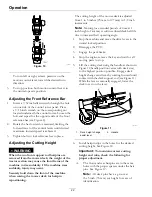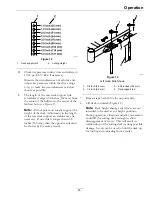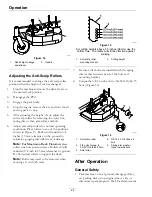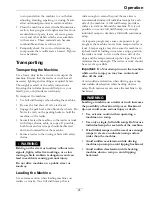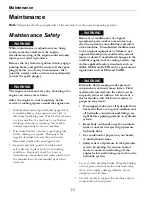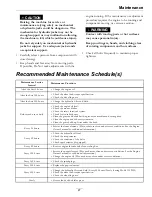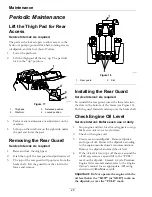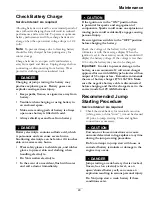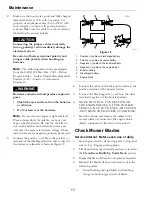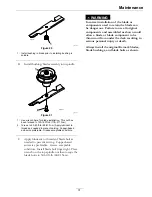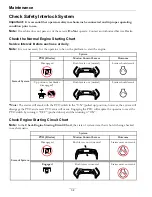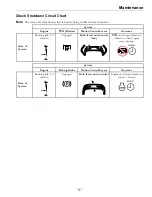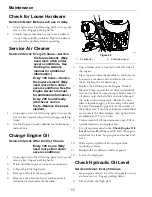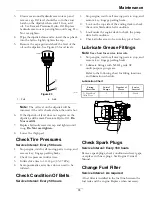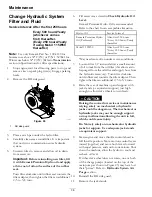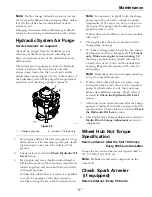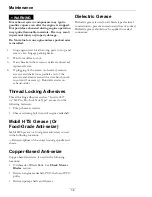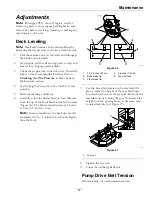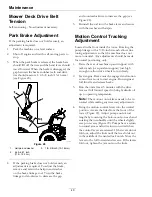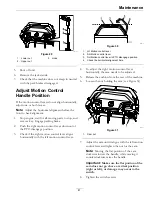
Maintenance
Maintenance
Note:
Determine the left and right sides of the machine from the normal operating position.
Maintenance Safety
WARNING
While maintenance or adjustments are being
made, someone could start the engine.
Accidental starting of the engine could seriously
injure you or other bystanders.
Remove the key from the ignition switch, engage
parking brake, and pull the wire(s) off the spark
plug(s) before you do any maintenance. Also
push the wire(s) aside so it does not accidentally
contact the spark plug(s).
WARNING
The engine can become very hot. Touching a hot
engine can cause severe burns.
Allow the engine to cool completely before
service or making repairs around the engine area.
•
Park machine on level ground, disengage drives,
set parking brake, stop engine, remove key or
disconnect spark plug wire. Wait for all movement
to stop and allow the machine to cool before
adjusting, cleaning or repairing. Never allow
untrained personnel to service machine.
•
Disconnect battery or remove spark plug wire
before making any repairs. Disconnect the
negative terminal first and the positive last.
Reconnect positive first and negative last.
•
Keep the machine, guards, shields and all
safety devices in place and in safe working
condition. Frequently check for worn or
deteriorating components and replace them with
the manufacturer’s recommended parts when
necessary.
WARNING
Removal or modification of original
equipment, parts and/or accessories may
alter the warranty, controllability, and safety
of the machine. Unauthorized modifications
to the original equipment or failure to use
original Exmark parts could lead to serious
injury or death. Unauthorized changes to the
machine, engine, fuel or venting system, may
violate applicable safety standards such as:
ANSI, OSHA and NFPA and/or government
regulations such as EPA and CARB.
WARNING
Hydraulic fluid escaping under pressure
can penetrate skin and cause injury. Fluid
accidentally injected into the skin must be
surgically removed within a few hours by a
doctor familiar with this form of injury or
gangrene may result.
•
If equipped, make sure all hydraulic fluid
hoses and lines are in good condition and
all hydraulic connections and fittings are
tight before applying pressure to hydraulic
system.
•
Keep body and hands away from pinhole
leaks or nozzles that eject high pressure
hydraulic fluid.
•
Use cardboard or paper, not your hands,
to find hydraulic leaks.
•
Safely relieve all pressure in the hydraulic
system by placing the motion control
levers in neutral and shutting off the
engine before performing any work on the
hydraulic system.
•
Use care when checking blades. Wrap the blade(s)
or wear gloves, and use caution when servicing
them. Only replace damaged blades. Never
straighten or weld them.
•
Use jack stands to support the machine and/or
components when required.
26











